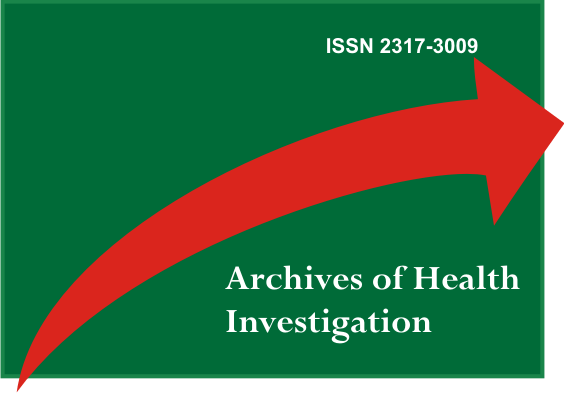Application of autologous platelet-rich plasma on tooth extraction site prevents onset of medication-related osteonecrosis of the jaws
Resumo
The use of antiresorptive drugs has increased due to the population aging, as they constitute an effective therapeutic alternative for treatment of common diseases in the elderly. Thus, patients making chronic use of this drugs have increased in the dental office, frequently requiring dental interventions potentially capable of triggering medication-related osteonecrosis of the jaws (MRONJ). Hence, it is necessary to establish effective and safe preventive protocols during dental treatment. The aim of this study was to evaluate the effects of local application of autologous platelet-rich plasma (PRP) on the tooth extraction site of rats presenting the main risk factors for MRONJ. For 7 weeks, senile rats were submitted to treatment with vehicle (VEH and VEH-PRP) or 100 μg/Kg of zoledronate (ZOL and ZOL-PRP) every 2 days. After 3 weeks, 1.5 mL of blood was collected, and the first lower left molar was extracted. In the VEH-PRP and ZOL-PRP groups the blood was destined to PRP preparation, which was applied at the tooth extraction site. Euthanasia was performed at 28 days postoperative. Clinical, histopathological, histometric and immunohistochemical analyses were carried out in histological sections from the tooth extraction site. The ZOL group showed lower percentage of newly formed bone tissue (NFBT), higher percentage of non-vital bone tissue (NVBT), as well as higher immunolabeling for tumor necrosis factor alpha (TNFα) and interleukin 1 beta (IL- 1β). In addition, ZOL group presented lower immunolabeling for proliferating cell nuclear antigen (PCNA), vascular endothelial growth factor (VEGF), bone morphogenetic protein 2/4 (BMP2/4), osteocalcin (OCN) and tartrate-resistant acid phosphatase (TRAP). VEH and ZOL-PRP groups showed improvement in the tooth extraction site wound healing and similarity in the percentage of NFBT, VEGF, BMP2/4 and OCN. Local application of autologous PRP showed a viable preventive therapy, which is safe and effective to restore tissue repair capacity of the tooth extraction site and prevent MRONJ during treatment with zoledronate.Descritores: Bisphosphonate-Associated; Osteonecrosis of the Jaw; Platelet Rich Plasma Prevention.
Downloads
Downloads
Publicado
2019-02-04
Como Citar
Casatti CA, Almeida JM, Nagata MJH, Garcia VG, Theodoro LH, Ervolino E, F. L. S. F. T. L. M.-N. J. S. C. (2019). Application of autologous platelet-rich plasma on tooth extraction site prevents onset of medication-related osteonecrosis of the jaws. ARCHIVES OF HEALTH INVESTIGATION, 7. Recuperado de https://archhealthinvestigation.com.br/ARCHI/article/view/4188
Edição
Seção
Ciências Básicas


